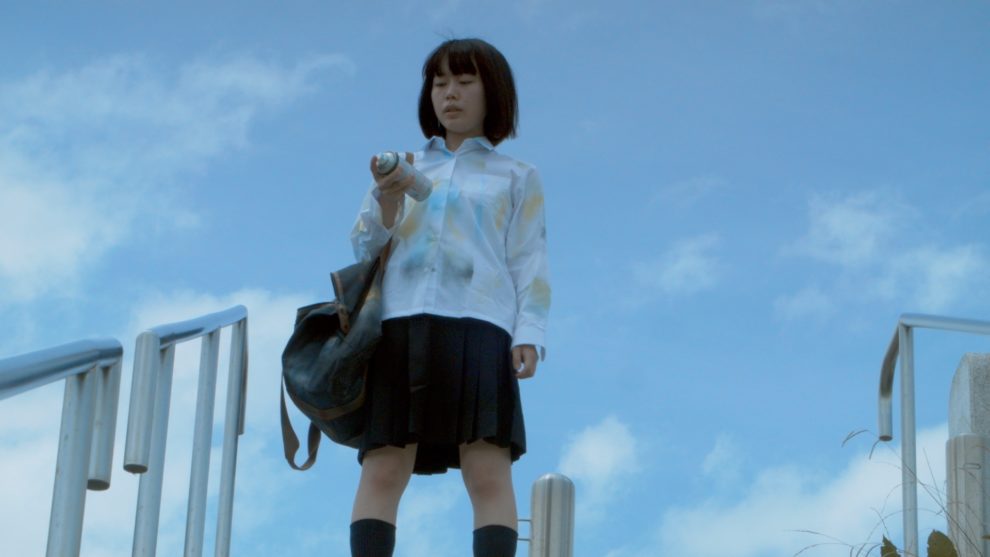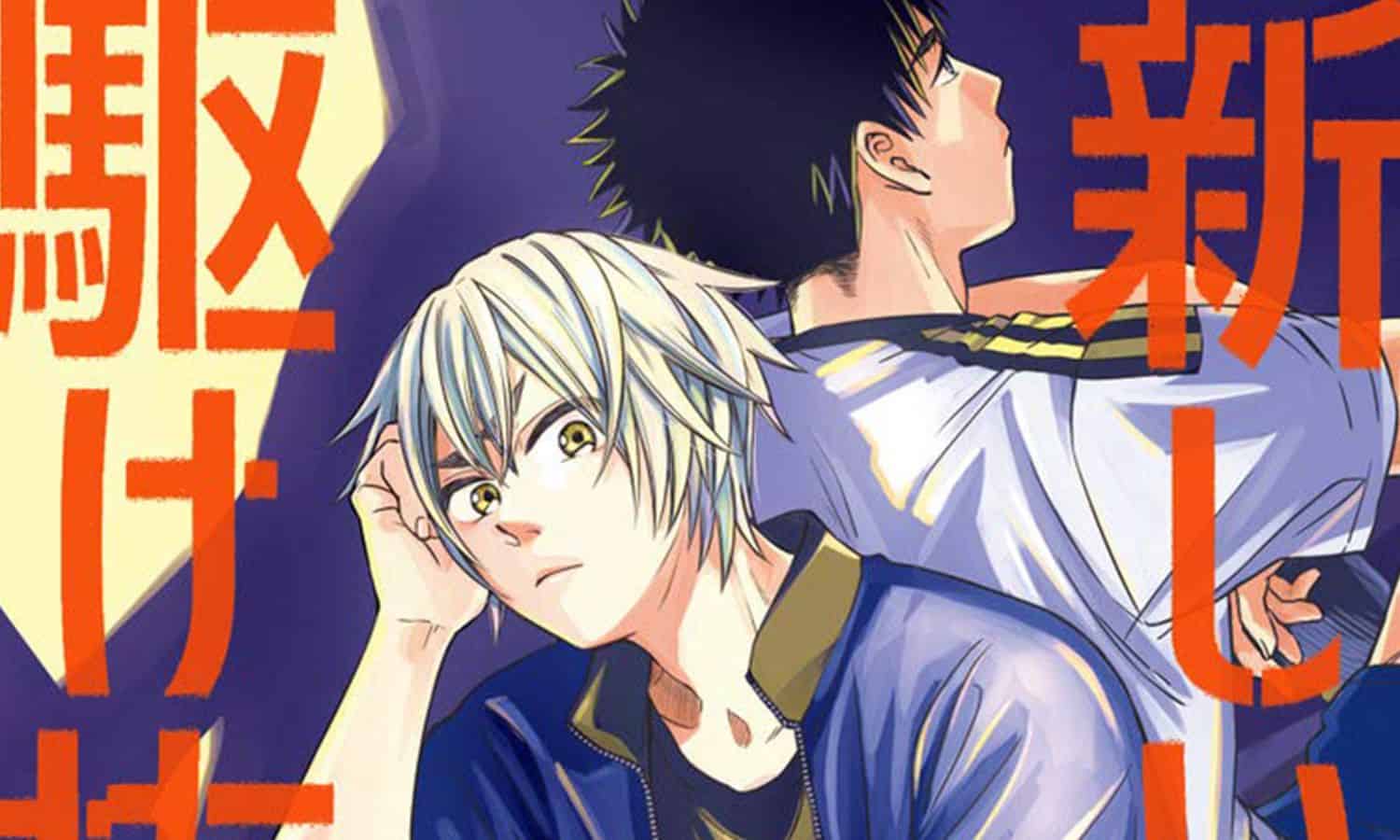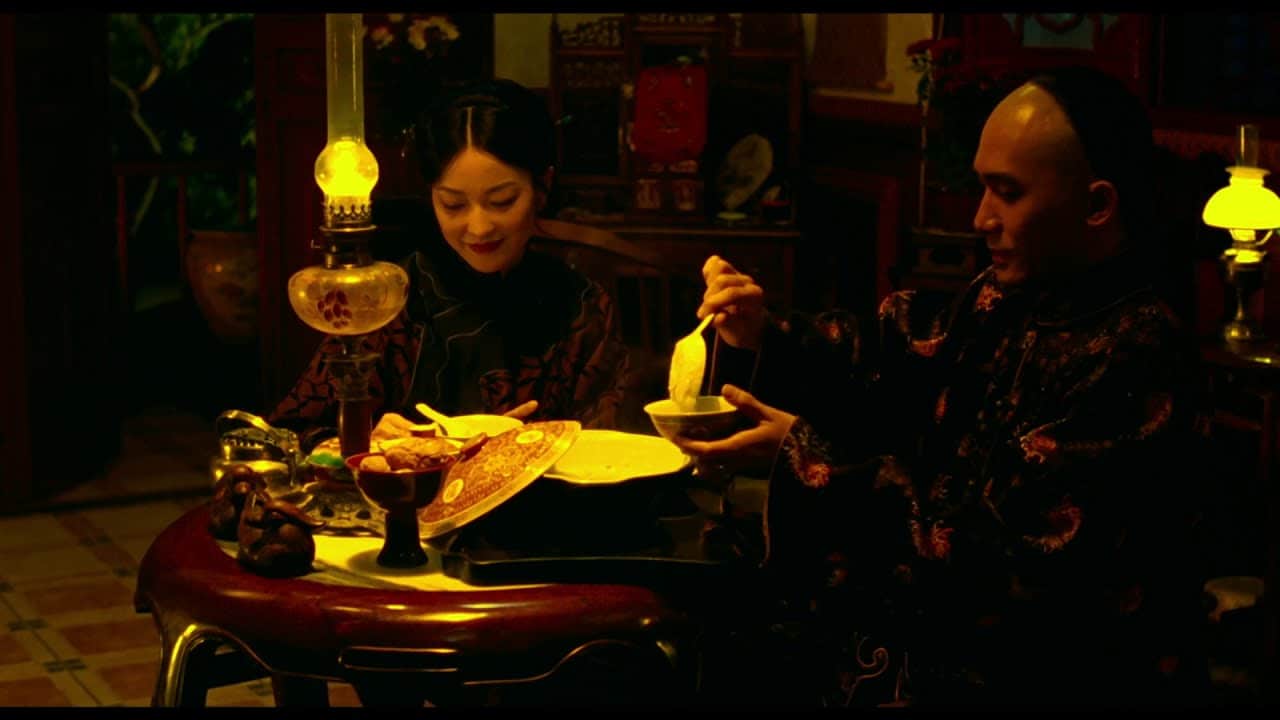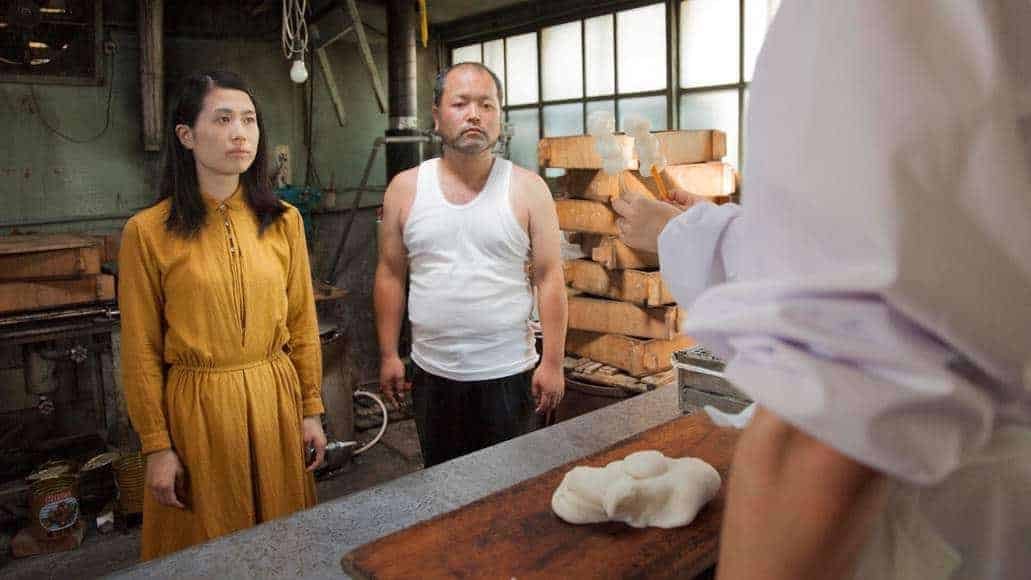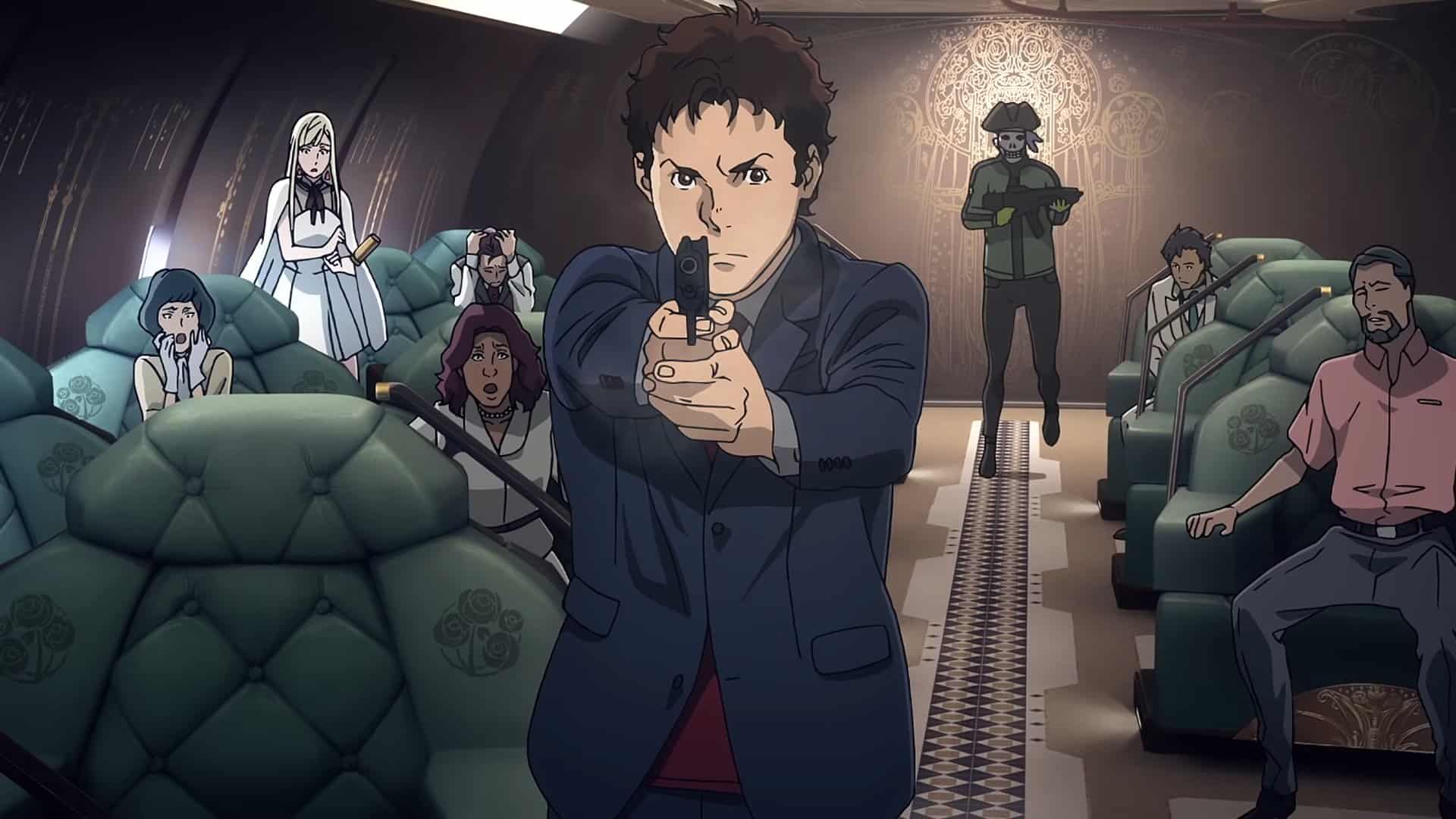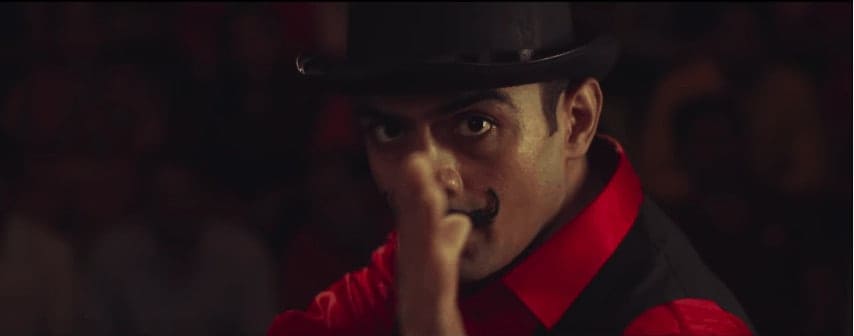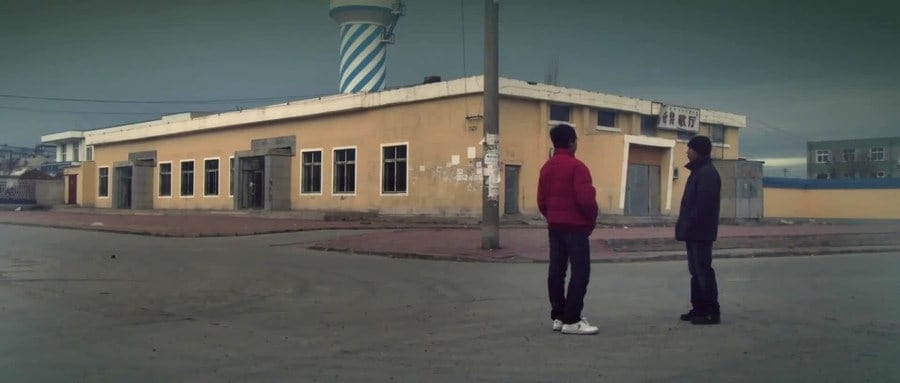Go Matsuo, apart from a filmmaker, is also an illustrator and motion graphics artist, which explains a bit on why he chose to base one of his films in the rather illustrative concept of the graffiti, in a 30-minute short that won a number of awards in local festivals, including Kyoto and Yamagata.
Graffiti Graffiti! is streaming on TodoiF

One night, on an instigation by her classmates, Yuzu, a high school girl, paints graffiti on the shutter of a shopping street shop, writing the word “Loser”.. The next day, Gonzo, the owner of the shop is enraged and paints over the initial graffiti, writing “Crappy”. Thus, a battle between these two unlikely foes begins, which leads, though, to completely unexpected paths, while eventually helping them face their own issues, as Yuzo is not sure what to do with her future, while Gonzo is retaining a shop in a neighborhood that is dying, essentially destroying himself financially.
Using a very amusing, humorous and light approach throughout the movie, Go Matsuo makes a series of comments regarding art, and particularly the way it can help people communicate in situations that otherwise would be impossible, bridge differences, and essentially bring people together. Furthermore, for Matsuo, art also seems to provide a path for the future for both young and older people, with the story highlighting the benefits of chasing one's dreams, even when they look impossible; in this case, a scholarship for a graffiti school in New York from Yuzu's side, and also the benefits of letting go, in Gonzo's case. The way both protagonists benefit from getting to know each other stresses the aforementioned remarks, while also showing that fighting, when it is done without violence, can also present benefits for people, again in the axis of getting to know others.
Apart from context, the movie also thrives on its visuals, with the overall bleak colors creating a great antithesis with the intense ones of the graffiti, while a number of scenes in the dark, as much the morphing sequence definitely stay on the mind of the viewer. In that fashion, Nozomi Irie's job in the cinematography is top notch, with the same applying to Matsuo's own editing, who induces the short with a rather fast pace that suits its overall aesthetics to perfection.
The acting is also in perfect resonance with the overall aesthetics, with Rikako Watanabe highlighting her lack of guidance and resolve in a way that shows the similarities she shares with Masamichi Hagiwara's Gonzo, thus creating a wonderful chemistry between the two.
“Graffiti Graffiti!” is very well shot, very smart in the presentation of its comments, and quite entertaining; a title that everyone will enjoy watching.


